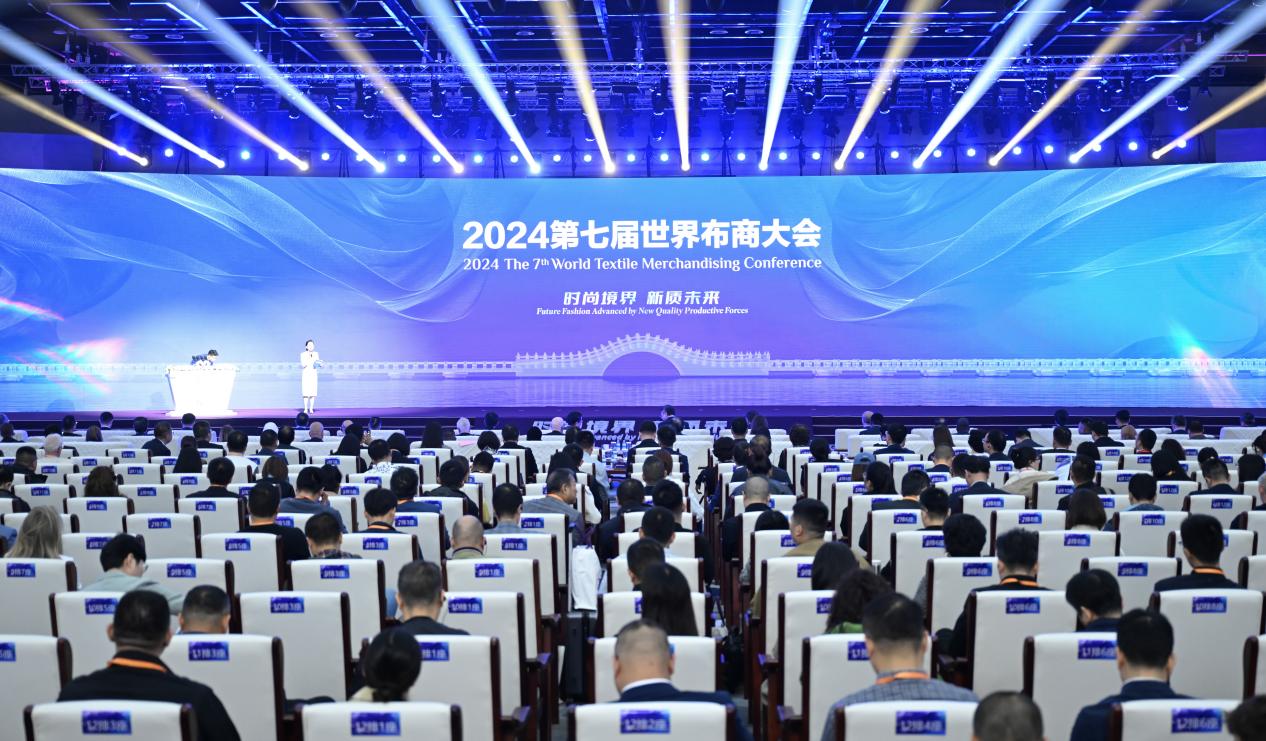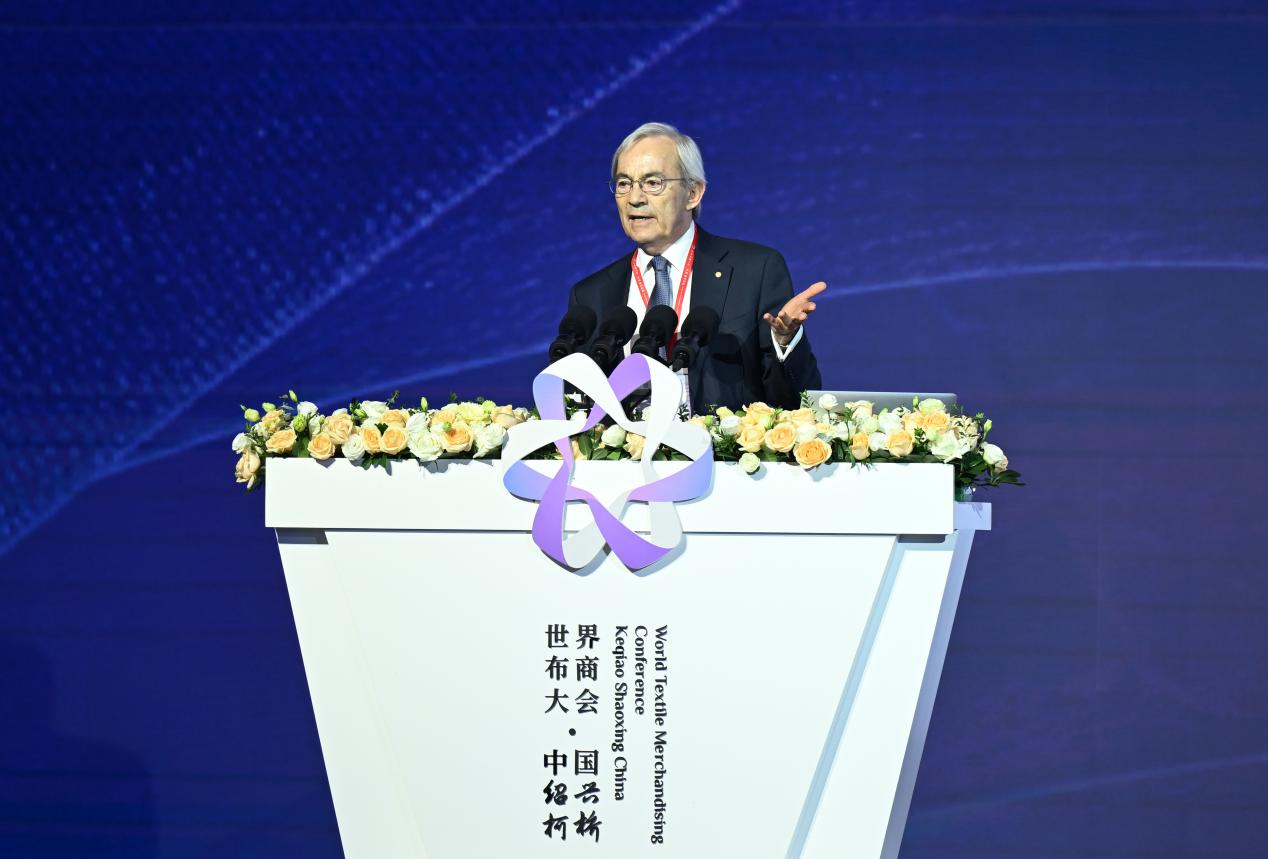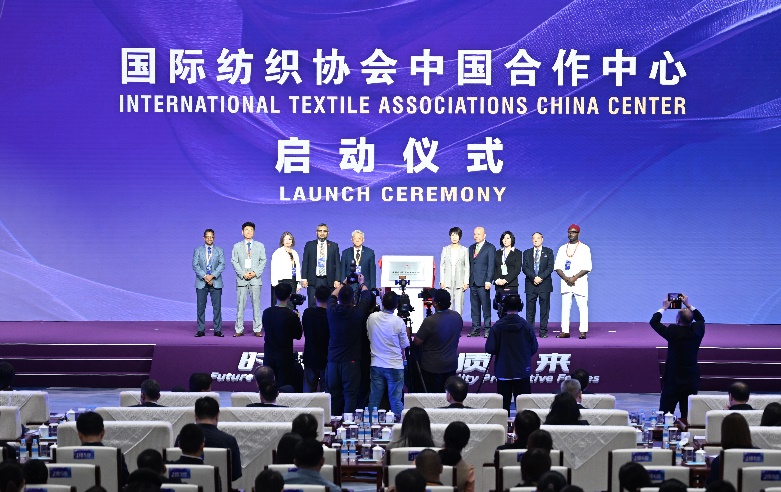发布时间:
来源:
韩国新华网
On October 24, 2024's 7th World Textile Merchandising Conference opened in Keqiao District, Shaoxing City, Zhejiang Province, with the theme "Future Fashion Advanced by New Quality Productive Forces." Textile industry representatives from more than 60 countries and regions, such as South Korea, Singapore, Malaysia, and Kyrgyzstan, attended the meeting to explore the future of the global textile industry.
Today's world is experiencing a century of great changes. A new round of scientific and technological revolution and industrial change is accelerating the evolution, as the labor-intensive, high degree of globalization of the textile industry is facing reshaping and change.
Nobel Prize-winning economist Christopher Pissarides said that Artificial Intelligence (AI) is considered the fourth industrial revolution, and the application of new technologies will have a profound impact on global supply chains, including the textile industry. Strengthening international communication and trust is crucial to the development of the global economy and trade.
Regarding fashion trends, Carla Buzasi, CEO of the world's leading trend research and forecasting agency WGSN, said that in the future, consumers will live more in the "digital world," and the use of digital technology will have a great impact on their aesthetic needs, so the textile and fashion industry needs to think about new aesthetic trends. For example, by leveraging AI technology, the colors, prints, and patterns of textile fabrics can be made more attractive.
China is a major producer, consumer, and exporter of textiles and garments, with a complete textile industry chain. China's textile industry is also a key force supporting the smooth operation of the world's textile industry system.
China National Textile And Apparel Council (CNTAC) President Sun Ruizhe said that China's textile industry is moving forward with a focus on science and technology, fashion, and green development, and is developing new quality productive forces that are tailored to local conditions to accelerate the transformation and upgrading of traditional industries.
In China, the readiness rate for smart manufacturing, the digitalization rate of production equipment, and the connectivity rate of digital equipment in the textile industry are among the leading levels in various industrial sectors. An increasing number of textile industrial hubs and enterprises are using technological means to achieve intelligent design and customized production.
Take the example of Shaoxing Keqiao known as "the international textile capital", which boasts the "world's largest textile distribution center" -- China Textile City. This year's first nine months saw the modern textile industry in Shaoxing Keqiao achieve a scaled-up industrial output of 101.8 billion yuan. Currently, the local government is building a "textile printing and dyeing industry brain", which has already connected with over 3,000 textile enterprises, driving the industry's production efficiency up by more than 8%.
At the conference, the "International Textile Associations China Center" was launched, and textile industry associations from 10 countries such as Russia, Pakistan and Thailand became the first members to enter. As an international service organization, the Center will strive to promote exchanges and cooperation among textile industry associations.
(Text/Xiang Jing, Photo/Wang Gang)

On October 24, 2024, The 7th World Textile Merchandising Conference opened in Keqiao.

At 2024 The 7th World Textile Merchandising Conference, Christopher Pissarides, Nobel Prize-winning economist, delivered a keynote speech.

At 2024 The 7th World Textile Merchandising Conference in 2024, "International Textile Associations China Center" was launched.
